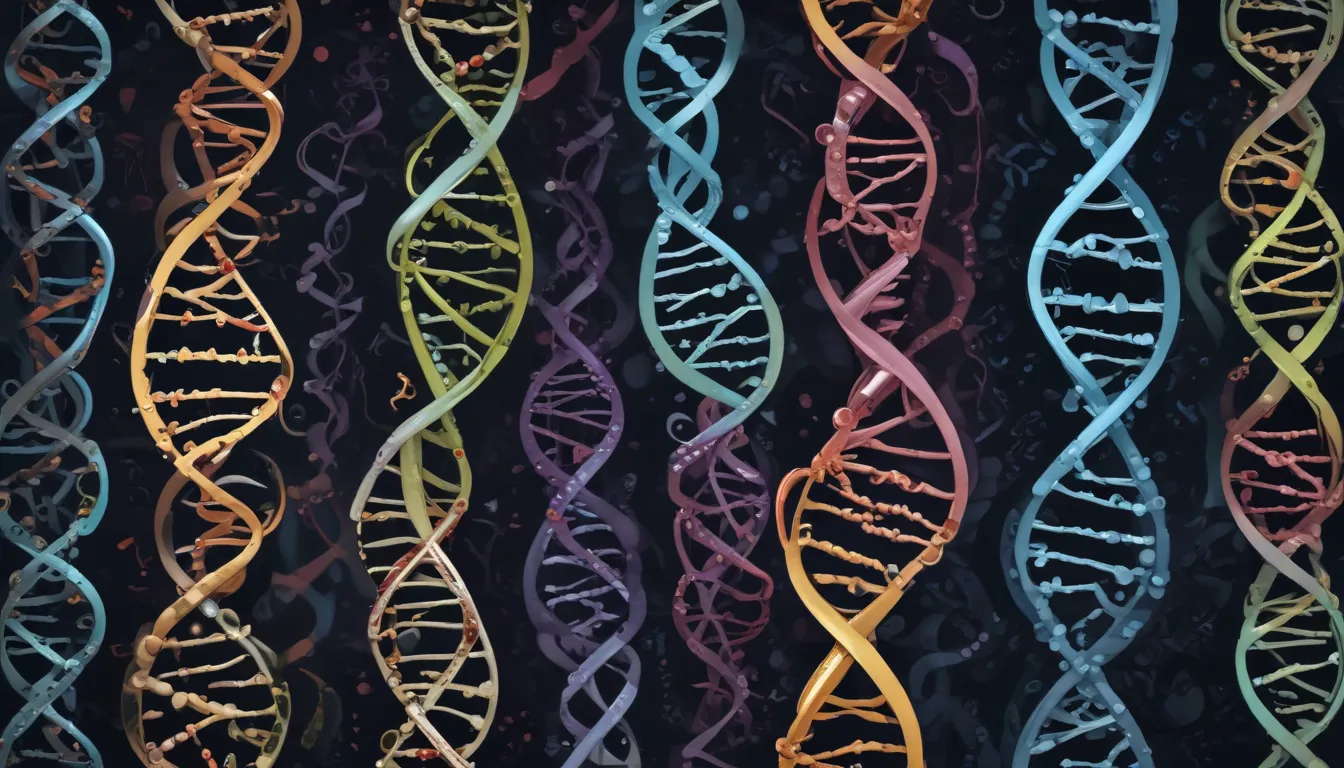A Note About Images: The images used in our articles are for illustration purposes only and may not exactly match the content. They are meant to engage readers, but the text should be relied upon for accurate information.
Genome-wide Association Studies (GWAS) have revolutionized the field of genetics, providing valuable insights into the intricate relationship between our genes and various traits and diseases. These studies involve analyzing genetic variations across the entire genome of a large number of individuals to identify specific genetic markers associated with particular traits or diseases. GWAS have been instrumental in unraveling the genetic basis of various conditions, from cancer to mental disorders. In this article, we will delve into 16 unbelievable facts about GWAS that highlight their significance in advancing our knowledge of genetics and disease susceptibility. From groundbreaking discoveries to challenging limitations, these facts will shed light on the immense potential and ongoing efforts in the realm of GWAS. Let’s embark on this journey of genetic exploration to uncover the mysteries hidden within our genomes.
The Evolution of Genetics through GWAS
Genome-Wide Association Studies (GWAS) have transformed our understanding of the genetic basis of diseases and traits, paving the way for personalized medicine and targeted therapies. These studies analyze variations in millions of genetic markers across the entire genome to identify associations with specific traits or diseases. Through GWAS, researchers have discovered thousands of genetic variants linked to various conditions, including cancer, diabetes, and heart disease.
By unraveling genetic variants associated with complex traits like intelligence or height, GWAS have provided insights into the heritability of these characteristics. Identifying genetic variants related to drug response has led to personalized medicine, allowing tailored treatments based on an individual’s genetic makeup. However, GWAS require large sample sizes to achieve statistically significant results, and researchers rely on sophisticated statistical techniques to analyze the vast amount of data generated.
Unveiling Surprising Connections
GWAS have not only led to groundbreaking discoveries but have also uncovered unexpected associations between genetic variants and traits that were previously unknown. The meticulous quality control measures in GWAS data are essential to minimize the impact of confounders or biases. International collaborations in GWAS are common, given the need for large and diverse datasets. Additionally, GWAS have contributed to a better understanding of disease mechanisms by revealing genetic variants associated with various conditions.
Most GWAS data is made publicly available, allowing researchers worldwide to access and analyze it for further discoveries. Advancements in technology and larger datasets continue to improve the accuracy and scope of GWAS, making them an ever-evolving field of research. Despite its limitations, GWAS remain a powerful tool in unraveling the complexities of the human genome and its implications for health and disease.
Unraveling the Genetic Mysteries
From uncovering the secrets of DNA to personalized medicine, GWAS have transformed our understanding of heredity. Here are 19 astounding facts that will blow your mind and delve into the fascinating world of the genetic code. Explore the application of statistics to biological data through 10 captivating facts that play a crucial role in unlocking genetic mysteries. Dive into the study of genetic variation within populations with 13 surprising facts that await your discovery. Get ready to be amazed by the incredible power of our genetic code!
Trust in Quality and Authenticity
Our commitment to delivering trustworthy and engaging content is at the heart of what we do. Each fact on our site is contributed by real users like you, bringing a wealth of diverse insights and information. Our dedicated editors meticulously review each submission to ensure the highest standards of accuracy and reliability. Trust in our commitment to quality and authenticity as you explore and learn with us.
FAQs
-
What is a genome-wide association study (GWAS)?
- A GWAS is a study that looks for associations between specific genetic variations and particular traits or diseases across the entire genome.
-
How are GWAS conducted?
- GWAS involves comparing the genetic makeup of individuals with a particular trait or disease to those without the trait or disease to identify genetic variations associated with the condition.
-
What are the advantages of GWAS?
- GWAS allows for the identification of common genetic variants contributing to disease risk, leading to improved understanding and treatment of various conditions.
-
Are there any limitations to GWAS?
- One limitation is that GWAS typically focuses on populations of European ancestry, which may limit the generalizability of findings to other ethnic groups. Additionally, most genetic variants identified through GWAS have small effect sizes.
-
How do GWAS findings impact personalized medicine?
- GWAS findings can help tailor treatment approaches by identifying genetic variants that influence drug response, leading to more personalized and effective therapies.
In conclusion, genome-wide association studies (GWAS) have revolutionized our understanding of the genetic basis of complex diseases and traits. These studies have provided invaluable insights into the role of genetic variations in disease susceptibility and treatment response. Through GWAS, we have discovered numerous genetic markers associated with a wide range of conditions, from common diseases like diabetes and heart disease to rare disorders. Despite challenges, GWAS remains a powerful tool in unraveling the complexities of the human genome and its implications for health and disease. As technology advances and datasets grow, GWAS will continue to play a crucial role in advancing our understanding of genetics and improving healthcare outcomes.






